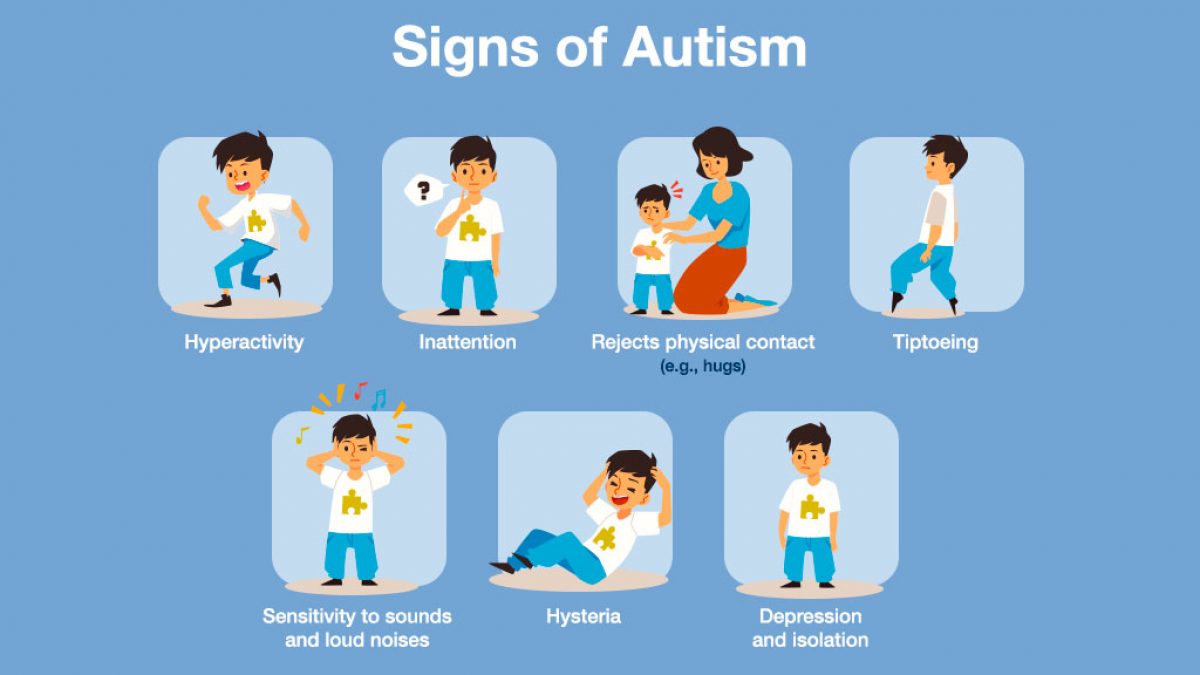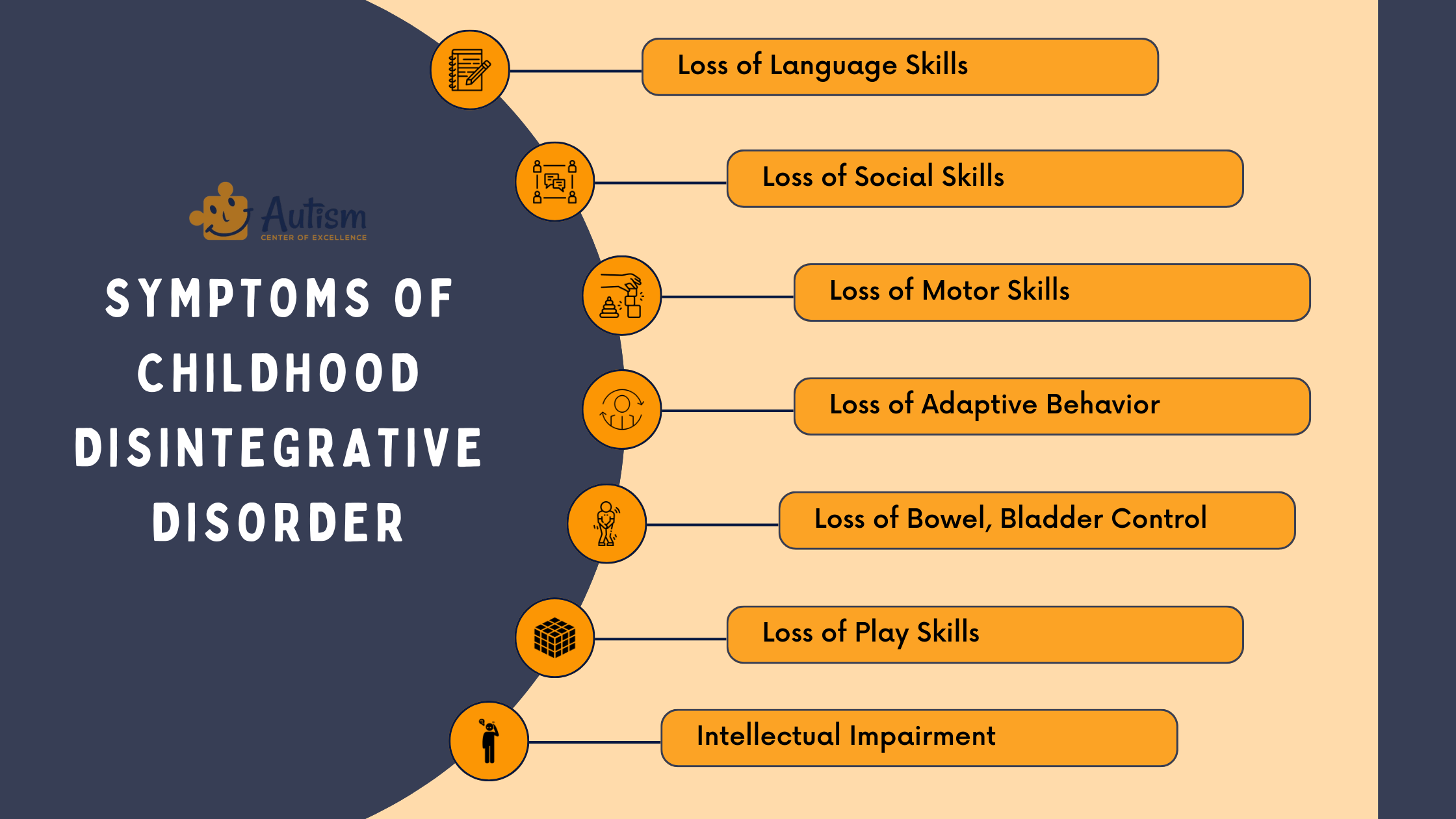Understanding sensory sensitivity with support from Autism Spectrum Therapies
Understanding sensory sensitivity with support from Autism Spectrum Therapies
Blog Article
Trick Indicators and Signs And Symptoms to Identify in People With Behavior Autism
When you experience someone with behavior autism, acknowledging essential indicators and signs is vital. Additionally, sensory level of sensitivities can lead to frustrating experiences.
Obstacles in Social Interactions
When you connect with somebody on the autism spectrum, you might observe they battle with social signs and communication. These challenges can make social communications feel frustrating for them. You may see them preventing eye contact or standing as well close or too away throughout discussions, which can produce misconceptions. They may not detect body language or faces, making it harder for them to evaluate just how others are feeling.
Furthermore, you might discover that they favor routines and acquainted setups, which can limit their desire to take part in new social circumstances. When they do engage, they might discuss their rate of interests in great detail without observing if you're interested. This can bring about one-sided conversations that leave you feeling separated. Understanding these difficulties can aid you approach interactions with empathy and persistence, cultivating an extra comfy environment for both of you.
Trouble With Verbal and Non-Verbal Interaction

Acknowledging these indicators is essential, as it assists you far better support and engage with people on the autism range. By understanding their communication difficulties, you can cultivate much more purposeful connections and give a much more encouraging environment.
Repetitive Habits and Regimens
Interaction challenges typically come with various other signs of autism, such as repetitive habits and a solid preference for regimens. You might discover that individuals with autism commonly participate in details, repetitive activities, like hand-flapping, shaking, or duplicating expressions. These behaviors can provide comfort and a sense of control in a typically frustrating globe.
Regimens are just as vital; several people grow when they adhere to an organized timetable. You may discover that changes to these routines can lead to substantial distress. If they have a day-to-day routine of eating breakfast at a details time or adhering to a specific route to college, any kind of interruption can cause stress and anxiety.
Recognizing these patterns aids you comprehend their behavior and provide assistance. By fitting their need for regular and enabling repetitive activities, you can produce a more comfy atmosphere that eases their challenges.
Sensory Level Of Sensitivities

Usual Sensory Triggers
Sensory sensitivities can substantially impact everyday life for people with autism, as certain stimulations typically trigger overwhelming responses. Usual sensory triggers include loud sounds, intense lights, and strong smells. You could notice that unexpected audios, like sirens or alarm systems, trigger anxiousness or distress. Fluorescent illumination in shops can really feel severe and uneasy. Structures can also play a substantial function; rough fabrics or specific food appearances may be intolerable for you. Furthermore, crowded locations can overwhelm your detects, making it tough to concentrate or relax. Comprehending these triggers can assist you handle your atmosphere much better. By knowing what influences you, you can take actions to decrease pain and boost your day-to-day experiences.
Behavior Actions Described
Comprehending your behavioral reactions to sensory sensitivities is essential, as they often disclose exactly how you communicate with the world. You might see that specific audios, lights, or structures bewilder you, resulting in anxiousness or discomfort. When confronted with these stimulations, you may withdraw, cover your ears, and even respond strongly. These responses aren't simply quirks; they're your means of dealing with overstimulation. You may likewise discover yourself looking for particular sensory experiences, like deep stress or peaceful environments, to aid ground yourself. Identifying these patterns assists you understand your demands better and can lead exactly how you connect them to others. By recognizing your sensory sensitivities, you can work towards developing an environment that really feels much more comfy and workable for you.
Coping Strategies Introduction
Identifying your sensory level of sensitivities is simply the very first step; now it's time to explore coping strategies that can help you take care of those experiences effectively. Beginning by developing a sensory toolkit customized to your requirements. Establishing an organized regimen can likewise offer predictability, decreasing anxiety around sensory overload.
Limited Passions and Focus
While many people create a large range of interests, those with autism often demonstrate restricted passions and an extreme focus on specific subjects. You may notice that a person with autism can invest hours delving right into their preferred subject, whether it's a certain sort of train, a specific flick, or a scientific principle. This intense emphasis isn't just a leisure activity; it can become a main component of their identification and social communications.
You might find that discussions rotate around these interests, and they may battle to involve in broader topics. By recognizing and recognizing these restricted rate of interests, you can cultivate an encouraging environment where they feel valued and comprehended, permitting for even more meaningful connections and interactions.
Psychological Law Difficulties
People with autism usually encounter obstacles in psychological guideline, which can be affected by their intense focus on specific interests. You could see that when a person is deeply taken part in a favored activity, they can experience solid feelings, whether exhilaration or disappointment. When things do not go as prepared., have a peek at this site this intensity sometimes makes it tough for them to change gears or handle their feelings - Aba Therapist Near Me.

Variability in Developing Landmarks
When it concerns developing turning points, you'll discover that individuals with autism frequently reveal a wide array of variability. Some may hit turning points promptly, while others might drag or development at a various speed. As an example, you could see a child excel in language skills however fight with social interactions. This disparity can be complicated, as standard standards do not constantly use.
It's vital to acknowledge that each individual's journey is unique. Some may create intricate abilities early, only to face challenges later on. Others could take longer to attain fundamental turning points but then grow in details locations. Observing these patterns can help you understand their toughness and requires better.
Often Asked Questions
Just How Is Autism Identified in Children and Grownups?
To diagnose autism in youngsters and grownups, experts evaluate actions, communication skills, and social communications. They typically use standardized tests, interviews, and monitorings to identify if a private satisfies the requirements Visit Your URL for autism spectrum condition.
Are There Various Kinds Of Autism Range Disorders?
Yes, there are different kinds of autism range disorders, including Asperger's disorder and pervasive developing disorder-not otherwise defined. Each kind differs in intensity and attributes, so understanding these distinctions can help you much better assistance people with autism.
What Therapies Work for Individuals With Autism?
When thinking about reliable therapies for individuals with autism, you'll find alternatives like Applied Behavior Analysis, speech therapy, and job-related therapy. Each approach can assist enhance interaction, social skills, and everyday working customized to specific demands.
Can People With Autism Lead Independent Lives?
Yes, individuals with autism can lead independent lives. With the right support, abilities training, and sources, you can aid them create self-sufficiency, take care of everyday tasks, and flourish in various environments, cultivating their self-reliance.
Just How Can Households Support Enjoyed Ones With Autism?
You can sustain your loved ones with autism by producing an organized environment, encouraging their rate of interests, practicing persistence, cultivating interaction, and promoting social skills. Commemorate their achievements, despite how small, and develop a helpful neighborhood.
Although lots of individuals on the autism spectrum can comprehend and utilize language, they usually deal with considerable difficulties with both spoken and non-verbal communication. Recognizing these indications is vital, as it assists you much better support and involve with individuals on the autism range. You may discover that people with autism typically involve in particular, repetitive actions, like hand-flapping, shaking, or repeating phrases.Sensory sensitivities can significantly influence everyday life for people with autism, as certain stimulations commonly trigger overwhelming reactions.When it comes to developmental milestones, you'll notice that individuals with autism frequently show a broad array of irregularity.
Report this page